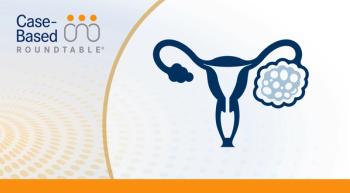
Bevacizumab Regimen Hits New OS Milestone in Ovarian Cancer
The addition of bevacizumab to a doublet chemotherapy regimen extended OS by nearly 5 months compared with standard chemotherapy alone in women with platinum-sensitive recurrent ovarian cancers.
Robert Coleman, MD
The addition of bevacizumab (Avastin) to a doublet chemotherapy regimen extended overall survival (OS) by a median of nearly 5 months compared with standard chemotherapy alone in women with platinum-sensitive recurrent ovarian cancers, according to clinical trial results that mark the first time a phase III study has reached this endpoint for this patient population.
The findings from GOG0213, presented at the 2015 Society of Gynecologic Oncology’s Annual Meeting on Women’s Cancer, narrowly missed statistical significance yet built upon evidence supporting the use of bevacizumab in recurrent platinum-sensitive settings. In November 2014, the FDA approved bevacizumab in combination with chemotherapy for the treatment of women with platinum-resistant recurrent ovarian cancer based upon an improvement in progression-free survival (PFS).
GOG0213, which was initiated in December 2007, accrued 674 women with epithelial ovarian, primary peritoneal, or fallopian tube cancers whose disease recurred after frontline or maintenance therapy that could have included prior bevacizumab. Nearly 70% of the participants were aged 50-69 years.
The study’s primary objective was to examine the role of bevacizumab (15 mg/kg) in combination with paclitaxel (175 mg/m2) plus carboplatin (AUC5) followed by maintenance with bevacizumab versus the same chemotherapy doublet. Both arms received paclitaxel and carboplatin for six cycles, and the study arm patients then continued with bevacizumab maintenance. Chemotherapy randomization terminated in August 2011 and matured for OS (n = 214 events in the control arm) in November 2014.
Median OS for patients in the bevacizumab treatment group was 42.2 months, compared with 37.3 months for those receiving chemotherapy alone (HR = 0.83;P= .056). PFS improved by nearly 3.5 months with bevacizumab: 13.8 months compared with 10.4 months for patients on chemotherapy alone (HR = 0.61;P<.0001). The risk reduction for progression and death with bevacizumab were 39% and 17%, respectively.
Trial Tackles Key Questions
The study’s second objective is to examine the role of secondary cytoreduction before chemotherapy is initiated. Enrollment for this objective is ongoing; accordingly, results are pending. Both objectives share the same primary endpoint of OS; secondary endpoints for both include safety and toxicity, PFS, and intervention-dependent quality of life (QoL).Lead author Robert L. Coleman, MD, professor and vice chair of Clinical Research, Department of Gynecologic Oncology, The University of Texas MD Anderson Cancer Center, is pleased with the findings. “Even though we narrowly missed statistical significance, we saw a strong trend toward improved overall survival,” Coleman said.
Coleman indicated the trial would address several persistent questions in the treatment of women with these cancers. “Platinum-based doublets have become a standard of care for women with platinum-sensitive recurrent ovarian cancer, but the roles of secondary bevacizumab and secondary surgery have yet to be defined,” he said at the conference. “There’s intense interest surrounding both of these issues, as well as a desire to understand bevacizumab’s effect on overall survival when other trials have largely assessed progression-free survival.”
During the trial, patients were randomized to chemotherapy (n = 337) or chemotherapy plus bevacizumab (n = 337). Each treatment arm had equal representation among three strata that had been prospectively defined: cytoreductive surgery as part of the study’s second objective (8%); prior platinum-free interval (6-12 months, 31%; >12 months, 69%); and previous bevacizumab exposure (yes, 10%; no, 90%).
Implications of Results
Adverse events (AEs) increased with the bevacizumab-containing regimen but all remained within expected parameters. AEs of special interest (grade ≥3) for the bevacizumab arm versus chemotherapy alone, respectively, included thromboembolisms (4% vs 1%), infections (13% vs 6%), hypertension (12% vs <1%), proteinuria (8% vs 0%), and any grade of GI perforation or fistula/abscess (15% vs 4%). All-cause deaths were 2 in the chemotherapy group versus 9 in the bevacizumab group; of these, 7 were possibly related to study treatment.During his presentation, Coleman compared outcomes from six studies that had sought to improve treatments for women with recurrent ovarian cancer. Improvements in PFS have established platinum-based doublets as the standard of care but none of the studies showed an improvement in OS.
Similarly, bevacizumab enhanced PFS when added to gemcitabine and carboplatin compared with the chemotherapy combination alone in the phase III OCEANS trial but did not demonstrate a statistically significant OS improvement.
In an interview withTargeted Oncology, Coleman answered the question of whether he believes GOG 213’s findings are already practice changing. “Yes, because we have pushed the median survival past 40 months in patients with recurrent disease,” he said. “We’re starting to find strategies and treatments that ultimately are quite strong.”
References
- Coleman RL, Brady RF, Herzog TJ, et al. A phase III randomized controlled clinical trial of carboplatin and paclitaxel alone or in combination with bevacizumab followed by bevacizumab and secondary cytoreductive surgery in platinum-sensitive, recurrent ovarian, peritoneal primary and fallopian tube cancer. Presented at: Society of Gynecologic Oncology’s Annual Meeting on Women’s Cancer 2015; March 28-31, 2015; Chicago, IL. Abstract 3 (late breaking).
- Aghajanian C, Blank SV, Goff BA, et al. OCEANS: a randomized, double-blind, placebo-controlled phase iii trial of chemotherapy with or without bevacizumab in patients with platinum-sensitive recurrent epithelial ovarian, primary peritoneal, or fallopian tube cancer [published online April 23, 2012].J Clin Oncol. 2012;30(17):2039-2045.
<<<

















